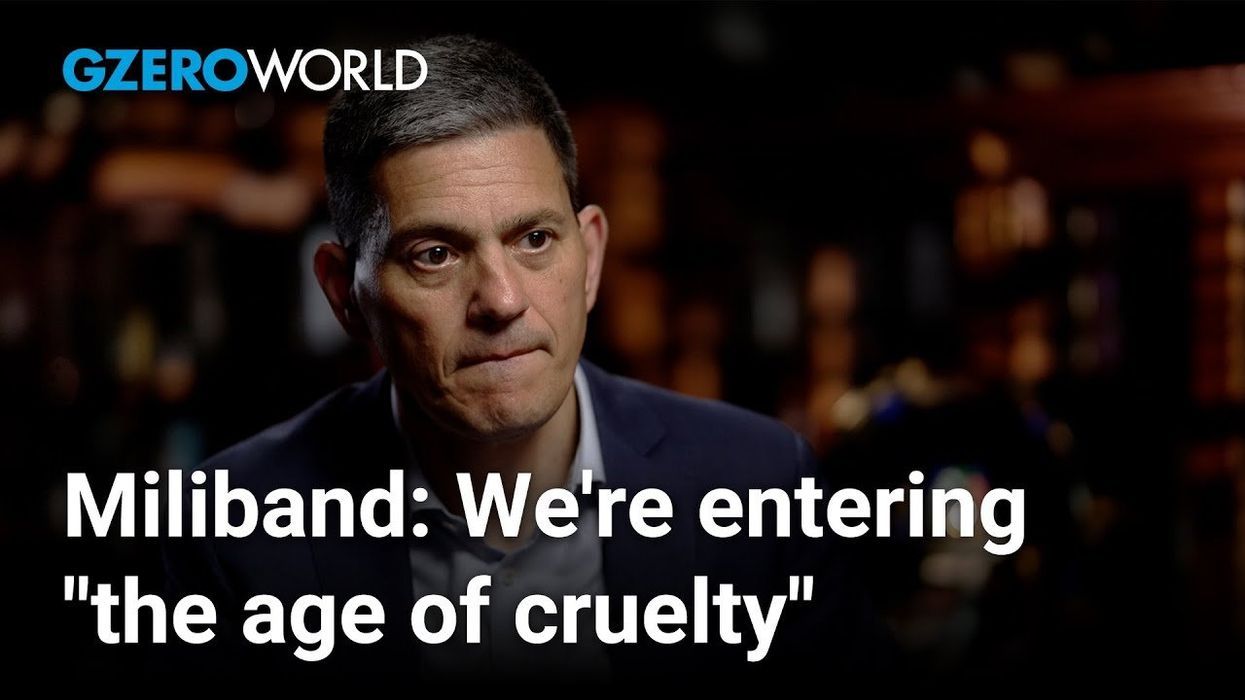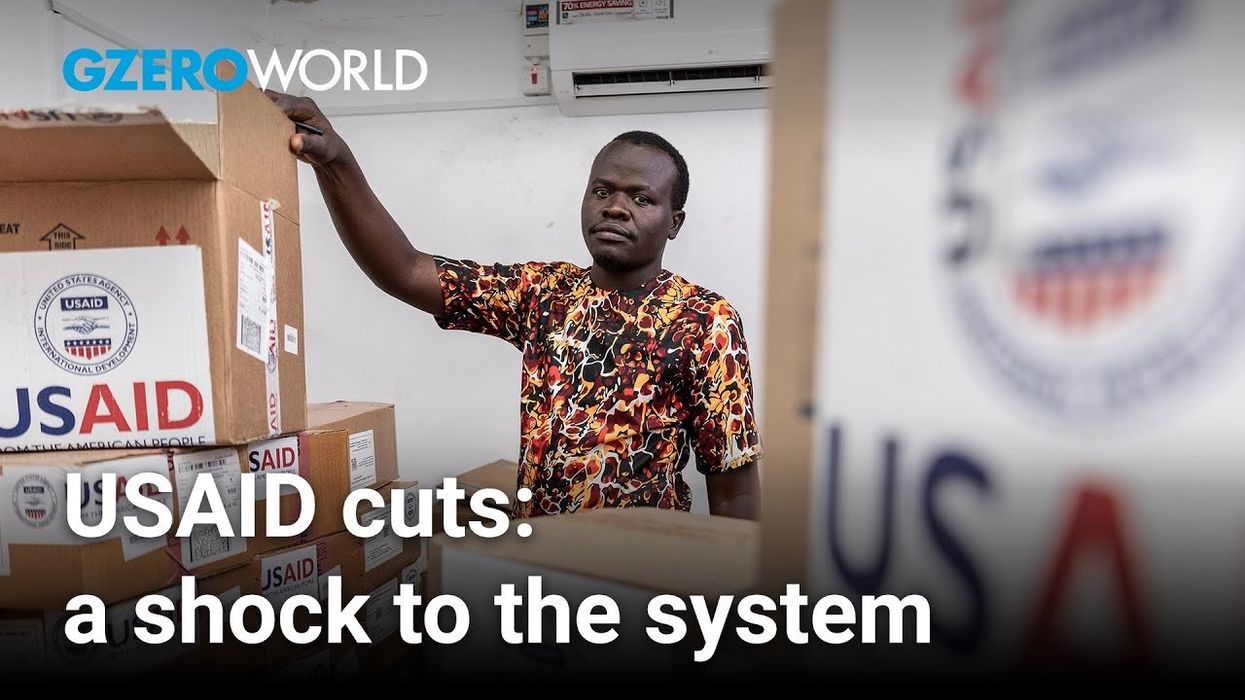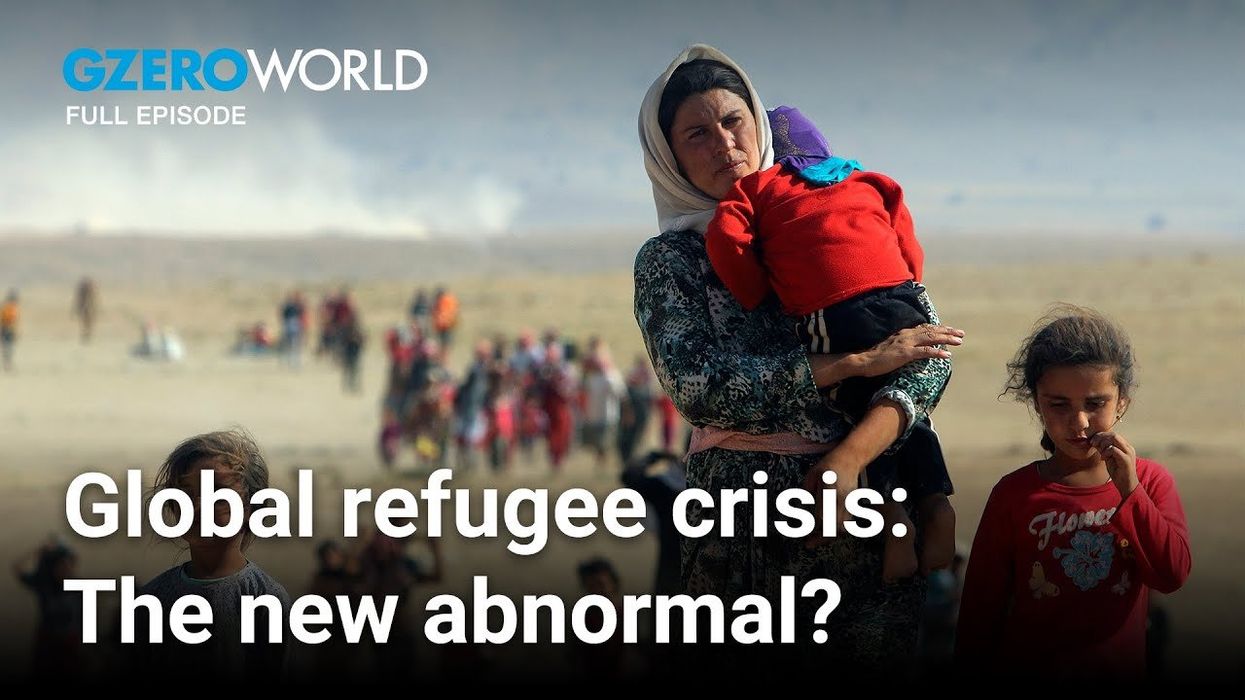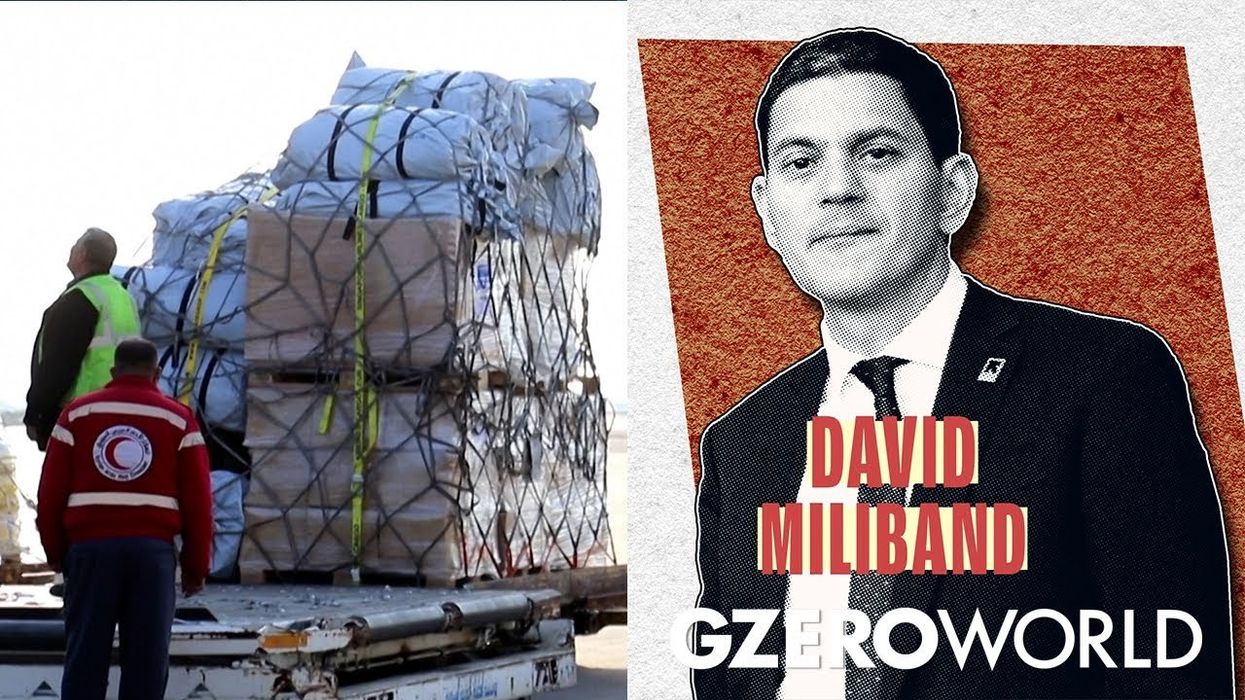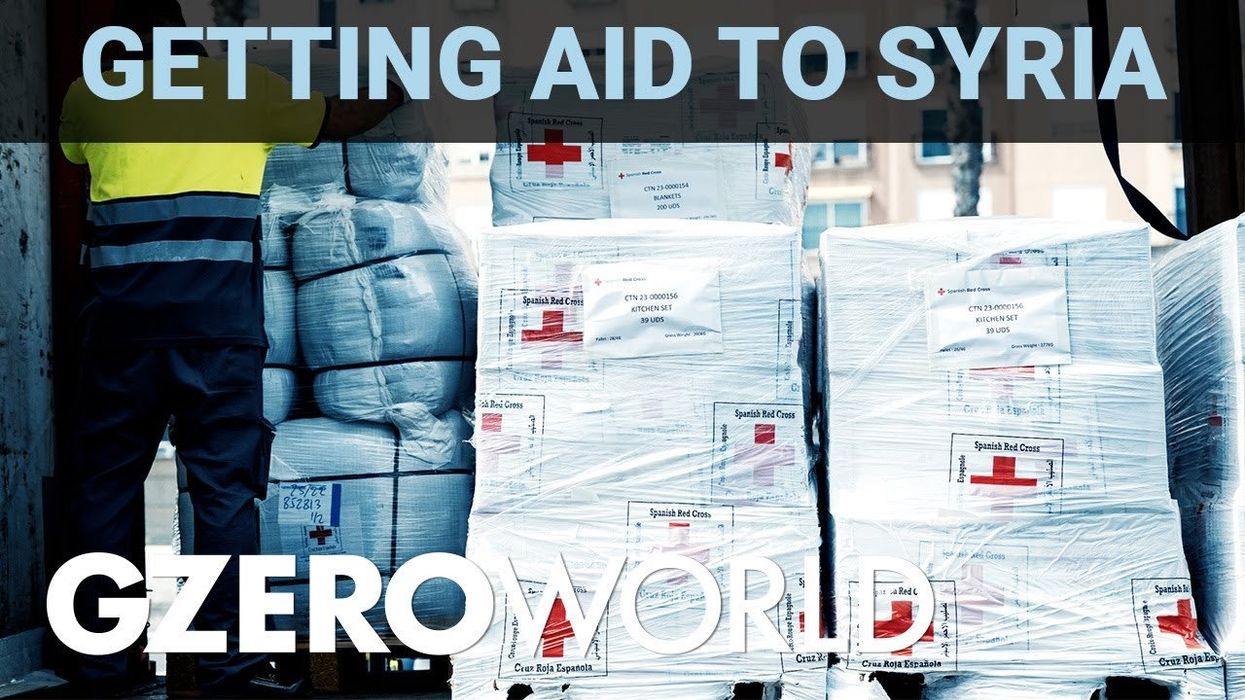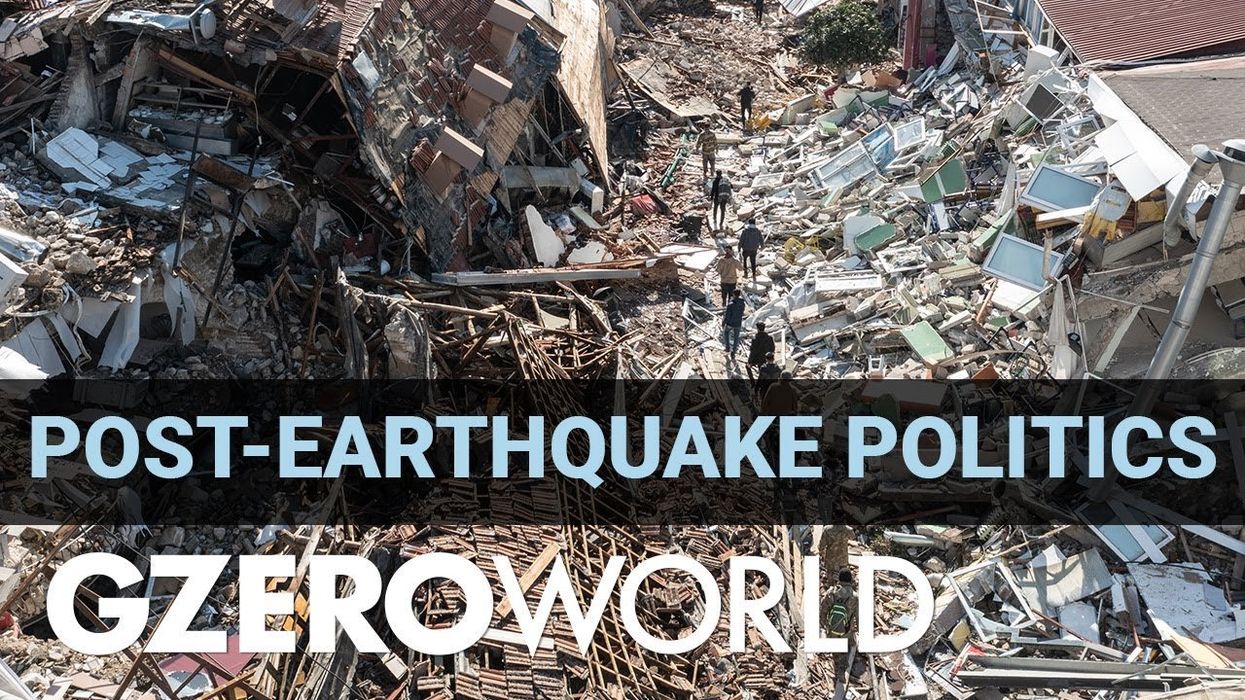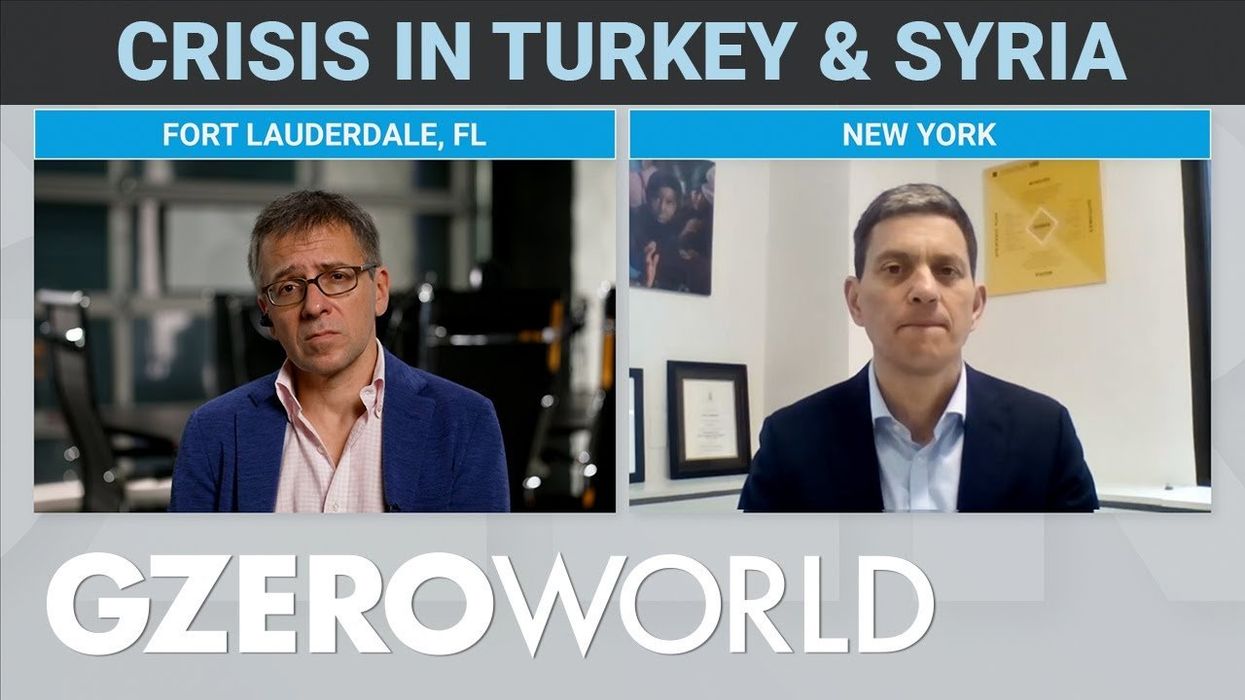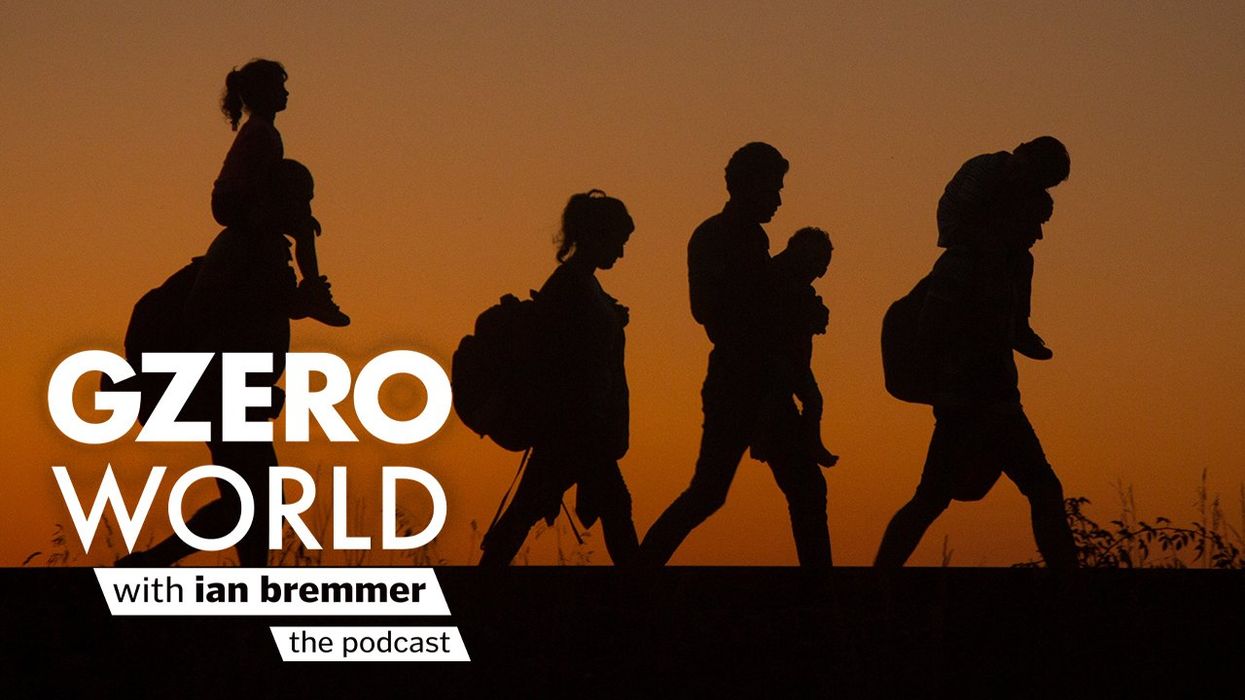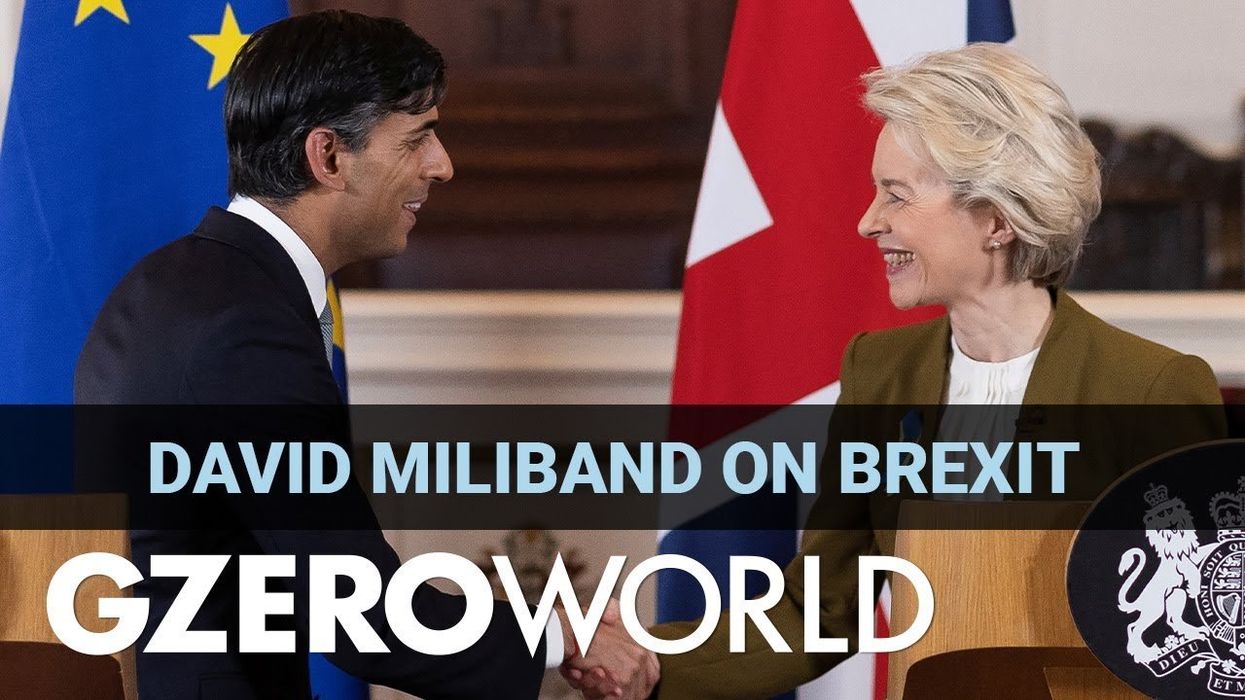GZERO World Clips
The rise of impunity–and its human cost
The world is shifting from an “Age of Impunity” to an “Age of Cruelty,” says David Miliband on GZERO World, where power is exercised without accountability, human rights are ignored, and civilians increasingly suffer the consequences.
Aug 26, 2025
